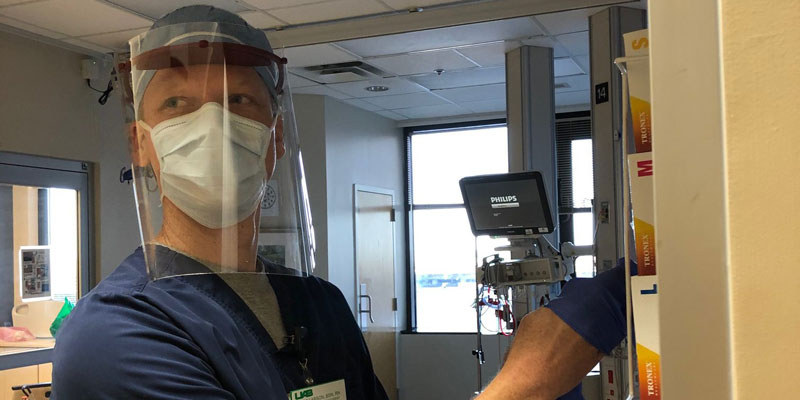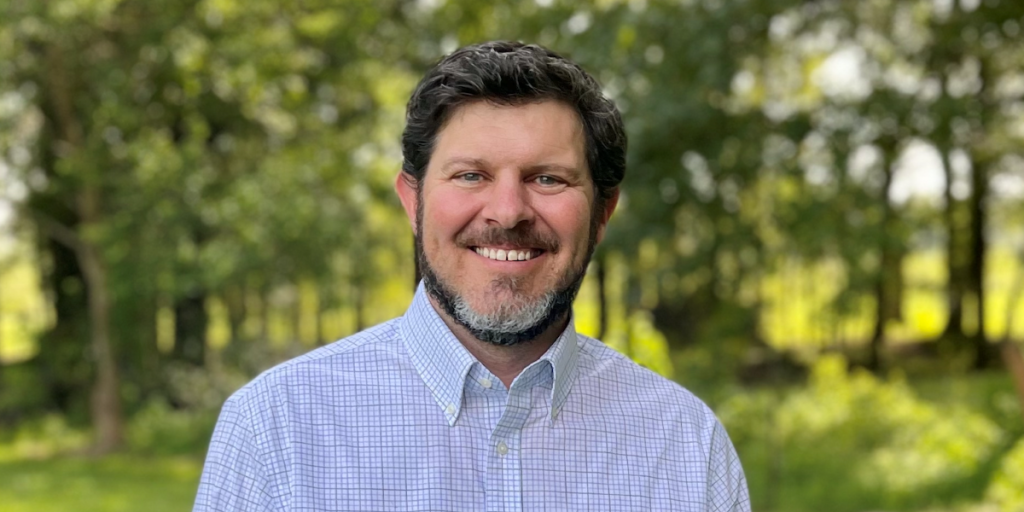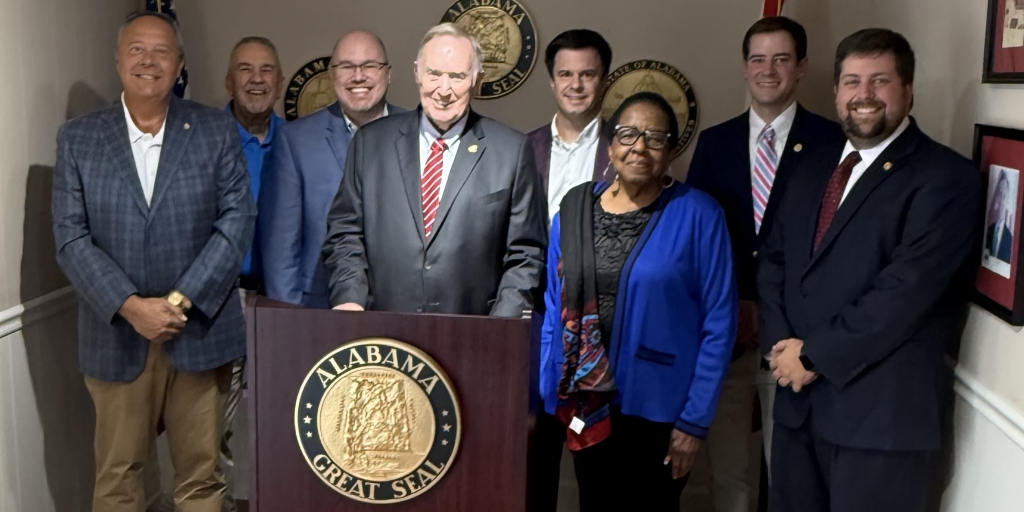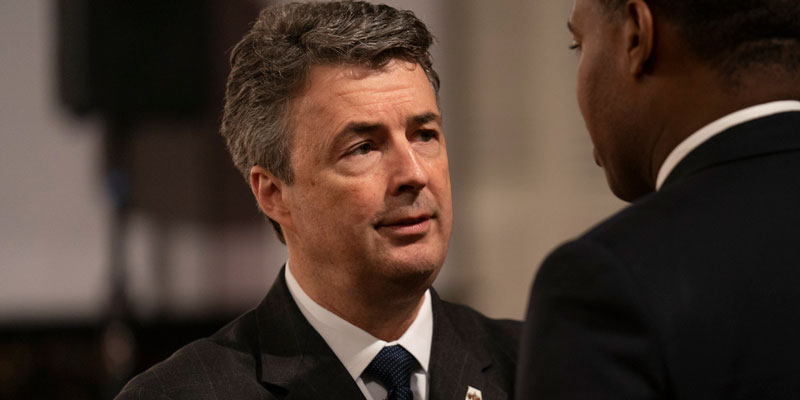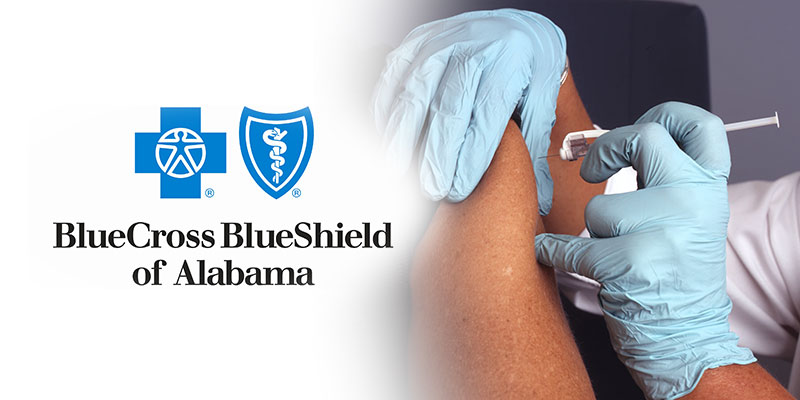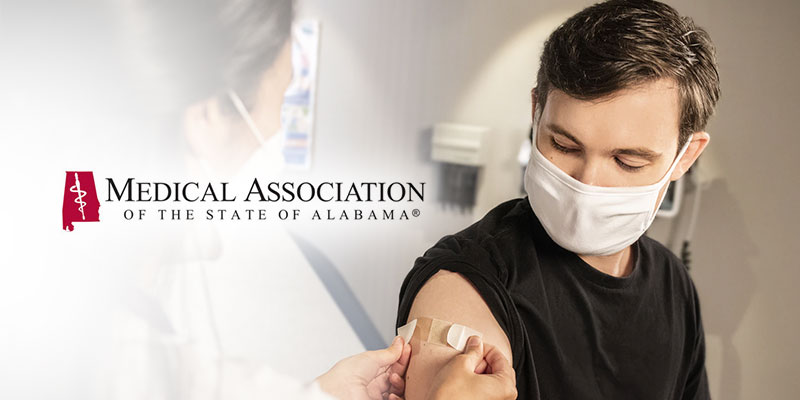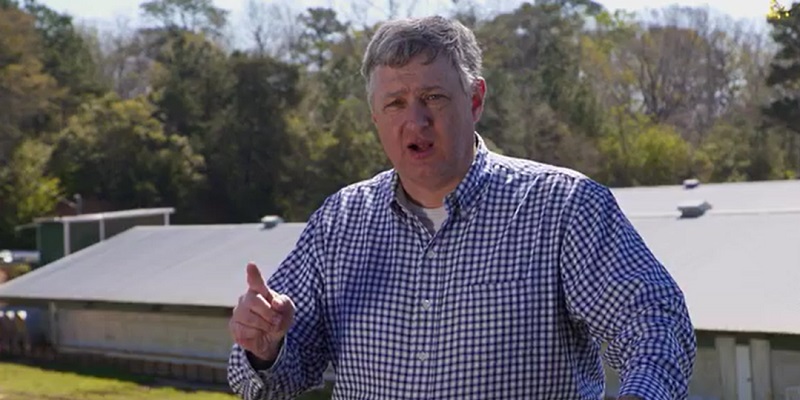An impromptu mission to produce much-needed protective equipment for Alabama health care workers started with two 3-D printers in a home workshop running around the clock. It’s grown into a coordinated network of partners that includes motivated volunteers, three local high schools and companies wanting to help.
This informal partnership has produced and delivered more than 2,100 protective face shields to hospitals, urgent care facilities, dental clinics, hospice providers, police departments and fire stations across Central and West Alabama.
“There is a lot of good will out there and a lot of people who want to help out our first responders,” said Alan Hill, executive director of the Alabama Productivity Center in the University of Alabama’s Culverhouse School of Business.
“What we have been able to do just makes you feel good – there is just no other way to say it.”
The APC teamed with Alabama Power’s Technology Applications Center and the UAB School of Engineering to kick off the mission in late March.
For the APC, it began with two 3-D polymer printers redeployed to employee Jody Beck’s residence, where he worked with his wife, Sadie, to produce plastic headbands for the face shields. At first, the printers were running 24/7.
Workers at Alabama Power’s Technology Applications Center (TAC) also produced headbands and laser cut plastic shields for the medical masks. UAB helped with additional 3-D printing and final assembly.
In addition to 3-D printing headbands, the project evolved when the TAC started using its cutting capabilities to cut the headbands from acrylic. This allowed the production of more than 100 headbands a day, according to Scott Bishop, the TAC’s team leader.
Also, Alabama Power’s Print Shop started cutting the shield materials to allow the team to provide the medical workers with a complete face shield. To date, the TAC has produced more than 1,000 headbands, and the Print Shop has produced over 9,200 face shields, Bishop said.
NEW PARTNERS
The initial goals were modest, but after word got out about the effort, new partners jumped on board, and the campaign began to expand.
Hill said several retirees with 3-D printers joined the effort, as did the 9-year-old daughter of an UAB professor who owned a printer. Teachers at Briarwood Christian, Hoover and Thompson high schools got permission to use their printers. An anonymous donor gave 4,500 disposable face shields.
The game changed when workers at Mercedes-Benz’s Alabama assembly plant became involved, Hill said. Initially, the 3-D printers at the automaker’s sprawling facility were deployed but soon other manufacturing capabilities were also brought to bear.
“We had been 3-D printing the headbands, but they started cutting them out of acrylic using their water jet cutters,” Hill said. “We went from making one headband every two and a half hours to making 14 every hour. That increased our output tremendously.
“I can’t say enough about the support we received from Mercedes,” he added.
https://twitter.com/APC_UofA/status/1247963166107197440?ref_src=twsrc%5Etfw%7Ctwcamp%5Etweetembed%7Ctwterm%5E1247963166107197440&ref_url=https%3A%2F%2Fwww.madeinalabama.com%2F2020%2F05%2Fpartnership-to-3-d-print-face-shields-grows-into-network-delivering-impact%2F
MAKING AN IMPACT
Hill said other companies also lined up to help.
ALG Labels + Graphics in Birmingham and FASTSIGNS, a printing company in Tuscaloosa, both donated face shield material. Pell City’s IPAK Alabama, a packaging supplier to Honda’s Alabama plant, provided foam bands that fit on the headband.
In a related effort, the CUBE, the 3-D printing lab operating UA’s College of Engineering, produced and delivered more than 1,700 protective face shields to health care facilities in West Alabama, Hill said. (More than $18,000 has been donated to this effort through an ongoing crowdfunding campaign.)
The broad support has allowed the APC to shift its 3-D printers to a new focus – producing ear relief straps for the plastic headbands on the protective face shields, which can become uncomfortable after lengthy wearing. These “ear savers” have also been given to workers at grocery stores and dental clinics who wear masks all day, Hill said.
“When all is said and done, this is really about keeping our first responders safe. If you keep just one of those people safe, it’s worth all the effort,” he said.
Greg Canfield, Secretary of the Alabama Department of Commerce, said the effort illustrates how the state’s education and business communities can seamlessly align to make an impact in the fight against COVID-19.
“This collaborative effort, like others across the state, is not only producing results but also revealing the Alabama can-do spirit of innovation that helps us meet the most difficult of challenges,” Secretary Canfield said.
(Courtesy of Made in Alabama)




